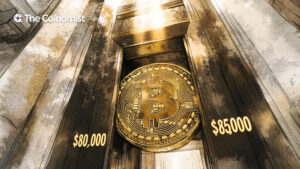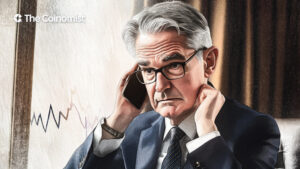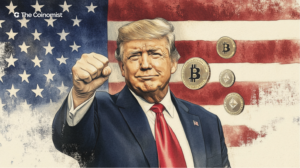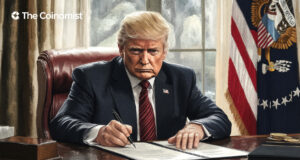What’s Going on With TikTok and What It Means for Crypto
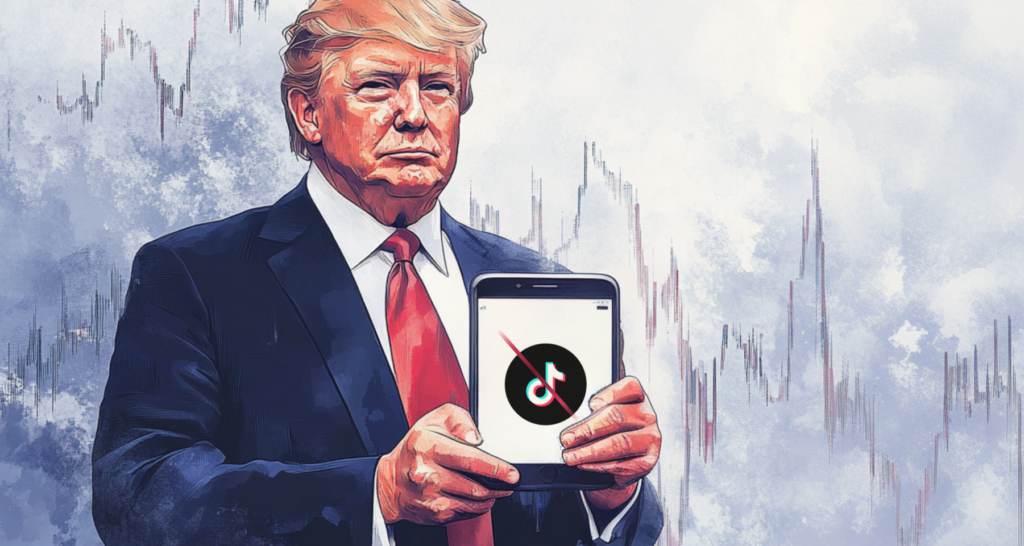
On January 18, the popular social media app TikTok went offline in the US, only to return a day later. Users regained access after President Donald Trump pledged to save the app just before his Inauguration Day.
On this page
- The Quick Take on Why TikTok Got Banned in the US
- TikTok Tried to Convince the US Government – Spoiler: It Didn’t Work
- What Will Happen to TikTok US Now?
- Countries That Have Banned TikTok
- TikTok and Crypto: How Can They Be Related?
- Shark Tank’s Kevin O’Leary and Billionaire Frank McCourt Offered to Buy TikTok and Build Alternative Internet
- So, What’s Next? A Decentralized Future?
What’s happening with TikTok? Why was the app banned? What’s next for the app? And what does the TikTok ban have to do with crypto?
Read on to find the answers to these questions.
The Quick Take on Why TikTok Got Banned in the US
For years, the US government has debated whether TikTok should be allowed to operate in the country, citing national security concerns.
The app was launched in 2016 by the Chinese tech company ByteDance as a global alternative to its Chinese version, Douyin. Fast forward to 2017, ByteDance bought another popular app, Musical.ly, and merged it into TikTok.
Thanks to its short, viral content and sophisticated recommendation algorithms, TikTok has gained a massive user base – more than 1 billion active users per month. In the US alone, over 120 million people use the app.
But why can this be a concern?
Without going much into politics, we need to mention the US-China tension and competition over a number of things, including technological and cybersecurity influence.
According to US authorities, the app presents a threat to the safety of users’ data and children’s privacy.
So, in 2020, President Donald Trump said he was considering closing down the app in the US unless an American company like Microsoft acquired it. Trump also issued an executive order banning US companies from dealing with ByteDance and its subsidiaries.
“The United States must take aggressive action against the owners of TikTok to protect our national security.”- he wrote.
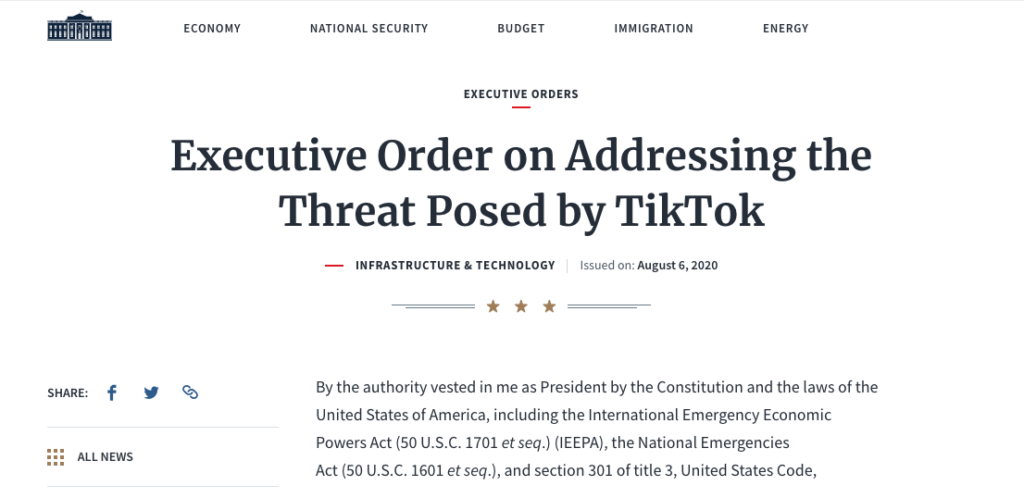
Related: TikTok Users Join Blockchain Game for Sonic Token Airdrop
However, when Joe Biden was elected president in November 2020, the plans to force TikTok’s sale remained incomplete.
This didn’t mean that the problem was solved, though.
TikTok Tried to Convince the US Government – Spoiler: It Didn’t Work
Facing allegations of allowing harmful content and leaking user data, TikTok introduced new rules for content promotion and partnered with the US tech company Oracle to manage its data servers.
But TikTok’s efforts to convince the US government that it wasn’t a threat weren’t enough.
In March 2023, TikTok CEO Shou Zi Chew faced nearly six hours of questioning in a US Congress hearing. Lawmakers asked if TikTok’s parent company, ByteDance, had spied on Americans at Beijing's request.
Zi Chew’s answer was no.
He mentioned that TikTok isn’t available in China and that the company’s headquarters are located in Los Angeles and Singapore.
The TikTok CEO, who is Singaporean, was asked multiple times if he is Chinese or has any relationship with China. To these, he also answered “no.”
In 2024, Congress discussed a bill to ban TikTok or enforce its sale. Users protested, but President Biden signed it. In May 2024, TikTok and ByteDance sued the US federal government.
And guess what?
They lost. The court decided that the ban should take effect on January 19, 2025. On January 18, the app was already unavailable in the country.
What Will Happen to TikTok US Now?
Ironically, Donald Trump, who first proposed TikTok’s ban, became the person thanks to whom the app is still available in the US—at least for some time.
On January 19, Trump wrote on Truth Social – a media platform he founded in 2022 – that he would issue an executive order to extend the TikTok ban law’s timeline. He stated that the order would confirm that any company that helped TikTok avoid going dark before the order took effect wouldn’t face any liability.
Next, in his post, the US president affirmed the condition for the app’s availability in the country:
I would like the United States to have a 50% ownership position in a joint venture. By doing this, we save TikTok, keep it in good hands and allow it to stay up.
– Trump said.
After going back online, TikTok greeted US users with a message: “Thanks for your patience and support. As a result of President Trump’s efforts, TikTok is back in the U.S.!”
Although ByteDance previously rejected the idea of selling company stakes, it may reconsider its approach. Whether they find a solution to keep TikTok available in the US is still uncertain.
Related: ByteDance & Huawei Team Up on New AI Model – A Game Changer?
Countries That Have Banned TikTok
As of January 2025, several countries besides the US have implemented or are considering bans on TikTok due to concerns over data privacy, cybersecurity, national security, and social influence.
Among these countries is Albania, which banned TikTok for a year after a 14-year-old schoolboy was killed by a fellow pupil following a TikTok argument. Moreover, videos of children supporting the killing appeared on the app.
Albania’s Prime Minister, Edi Rama, blamed TikTok and social media for fueling violence.
Since 2020, TikTok, along with dozens of other Chinese apps, has been unavailable in India following a clash between Indian and Chinese troops.
In December 2022, Taiwan banned the app from public devices after the FBI warned that TikTok posed a national security risk.
Other countries, including the UK, Australia, and New Zealand, have banned TikTok from government devices.
TikTok and Crypto: How Can They Be Related?
The connection between TikTok and crypto is deeper than it might seem at first glance. TikTok is a hugely popular platform where you can find videos about the crypto industry, including trading tips, memes, and educational content. However, like any other space, it’s not immune to scams, so caution is advised.
Because of this, a TikTok ban in a country directly impacts the accessibility of crypto-related content for users there.
But there’s more to the story.
The crypto community has long been vocal about concerns regarding data privacy. Many point out that centralized servers make it hard to know how companies are using or controlling your data.
On a Reddit forum, one user highlighted risks specifically tied to TikTok. According to the post, TikTok collects a wide range of data, and anyone using a crypto wallet and the app on the same device might want to change their wallet for security reasons.
One potential solution is turning to decentralized social media platforms – or perhaps even exploring ways to make TikTok itself decentralized.
Related: Alternative Social Networks: Top 5 DeFi Projects
Shark Tank’s Kevin O’Leary and Billionaire Frank McCourt Offered to Buy TikTok and Build Alternative Internet
Project Liberty, founded by billionaire Frank McCourt, made an official offer to buy TikTok on January 9. Together with its consortium, People’s Bid, the project announced it has no plans to use TikTok’s existing algorithm.
Instead, they plan to launch the platform on digital infrastructure designed to put people back in charge of their data and relationships.
People’s Bid includes investors such as Kevin O’Leary, Chairman of O’Leary Ventures and host of Shark Tank.
According to McCourt, TikTok’s value without its famous algorithm is estimated at around $20 billion. By comparison, the total valuation of TikTok’s parent company, ByteDance, was estimated at approximately $300 billion in November 2024.
Founded in 2021 (following its initial launch in 2019), Project Liberty is backed by a $ 500 million commitment. It brings together efforts from the Project Liberty Institute – a nonprofit collaborating with major institutions like Georgetown, Stanford, and ETH Zurich – and a tech team focused on building the future of digital infrastructure.
McCourt’s vision is to create a decentralized internet where people, not big tech companies, own and control the data generated by their online activities. To this end, Project Liberty has introduced the Decentralized Social Networking Protocol (DSNP), a freely accessible digital public infrastructure managed by the Institute.
Buying TikTok is just one part of the broader plan. Even if the bid doesn’t succeed, the project will continue its work toward building a people-powered internet.
Although ByteDance has not announced that TikTok is for sale, its speculative buyers reportedly include Elon Musk, MrBeast, Rumble, Kotick, Microsoft, and Walmart.
Related: Kevin O’Leary: SEC Lawsuits Make Crypto Radioactive Waste
So, What’s Next? A Decentralized Future?
The TikTok situation isn’t just about a single app—it’s a whole conversation about who controls the internet and how much say we actually have. And if you’ve been around the crypto block, you know this is kind of a big deal.
People in crypto have this dream of an internet where you own your data, not some massive company. Imagine if TikTok—or any mainstream app, really—was built on a decentralized system. No government bans, and no data tracking.
Sounds great, right?
But let’s not get ahead of ourselves. Right now, the crypto community mostly hangs out on Twitter and Discord, debating, sharing memes, and, of course, throwing shade.
These platforms aren’t perfect (hello, centralization), but they’re where the action is.
Projects like Project Liberty are trying to shake things up, aiming to build a decentralized internet where users – not corporations – call the shots. Whether or not they pull it off, they’re planting the seeds for a future where our online lives aren’t so tightly controlled.
Related: Project Liberty Partners with SOAR to Advance Web3 Social Media
The content on The Coinomist is for informational purposes only and should not be interpreted as financial advice. While we strive to provide accurate and up-to-date information, we do not guarantee the accuracy, completeness, or reliability of any content. Neither we accept liability for any errors or omissions in the information provided or for any financial losses incurred as a result of relying on this information. Actions based on this content are at your own risk. Always do your own research and consult a professional. See our Terms, Privacy Policy, and Disclaimers for more details.






